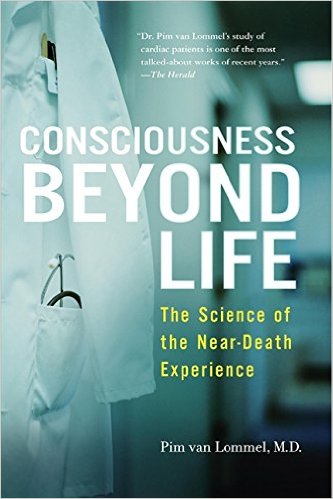|
Word Gems
exploring self-realization, sacred personhood, and full humanity
Editor's Essay
Divorce: Part II
and Jesus said,
“yes, maybe you shouldn’t marry”
return to "Divorce" main-page
twice he warned, 'most of you will not be able to accept this'
The purpose of this writing is to emphasize a particular item of discussion in the “Divorce: Part I” article. I felt it needed a “banner headline” format because Jesus himself went out of his way, not once but twice, in effect, to charge, “What I’m saying here is really hard and most of you won’t be able to do this right now.”
Matthew 19:3-12, New International Version
3 Some Pharisees came to him to test him. They asked, “Is it lawful for a man to divorce his wife for any and every reason?”
4 “Haven’t you read,” Jesus replied, “that at the beginning the Creator ‘made them male and female,’
5 and said, ‘For this reason a man will leave his father and mother and be united to his wife, and the two will become one [person]?
6 So they are no longer Two, but One. Therefore what God has joined together, let man not separate.”
7 “Why then,” they asked, “did Moses command that a man give his wife a certificate of divorce and send her away?”
8 Jesus replied, “Moses permitted you to divorce your wives because your hearts were hard. But it was not this way from the beginning.
9 I tell you that anyone who divorces his wife, except for marital unfaithfulness, and marries another woman commits adultery.”
10 The disciples said to him, “If this is the situation between a husband and wife, it is better not to marry.”
11 Jesus replied, “Not everyone can accept this word, but only those to whom it has been given.
12 For some are eunuchs because they were born that way; others were made that way by men; and others have renounced marriage because of the kingdom of heaven. The one who can accept this should accept it.”
Let’s recall the teaching moment:
There were people in the crowd that day who wanted Jesus to tell them what they wanted to hear. They wanted him to say that they could marry for any reason, and be rid of a wife for any reason.
However, not only did Jesus refuse to rubber-stamp the cravings of their lower natures, he threw it back at them and said, “Far from what you guys are trying to pull, from the beginning the original legislative intent of the mind of God was to allow absolutely no divorce at all. None. Zero. Nada.”
what part of ziltch don't you understand
As we learned in the earlier writing, Jesus was speaking of the lofty spiritual marriage which, in more than 99% of the cases in this world, doesn’t even exist. It's for the future when we're more mature. But the Teacher didn’t try to make himself clear to the mob because their minds were already made up. He was more into “shock value” that day.
And shock them he did. Everybody was hopping mad at him now. None of the rabbis, even the conservative ones, went that far. “Who does he think he is laying down the law that way?” And even his own men, his students, chafed at this new ultra-restrictive dictum: “Well, maybe we shouldn’t get married at all then if it’s going to be that way!”
Jesus responded to this mildly sarcastic jab with words that meant, “Yes, that’s right – maybe you shouldn’t get married.”
are we having fun yet
With all of the arrows going back-and-forth, all of the misunderstanding, it’s easy to lose sight of the fact that Jesus was making a statement to be taken seriously. He underscores his intent to be heard with phrases like, “If you have ears to hear” or “If you are one of the few who understands,” then “you should accept, you should live by, the words I speak today. You should not marry.”
what’s this all about, what’s really going on here
“From the beginning,” that is, from the metaphoric beginning of Adam and Eve, the original Twin Souls, it was God’s intent for male and female to mirror the divine essence, the Mother-Father Godhead. Man and Woman were “made in the image” and it was part of their destiny to become more godlike as they become more intimate and romantically bonded.
But this is a lofty view indeed. The marriages of this world fall far short of this ideal. The men in the crowd that day, with their hard hearts, egocentrisms, and materialistic views of love, life, and marriage, typified what’s wrong with the human race. In this unenlightened state, in this lower level of consciousness, it would be impossible to experience the spiritual Twin Soul marriage.
As we’ve seen, Jesus as Zen-Master wasn’t trying to be understood. It would be a waste of time attempting to vivify hard-hearts that did not wish to be awakened. But, what did Jesus mean when he said, “You should not marry”?
The directive, “You should not marry,” is spoken to anyone who has “ears to hear.” In other words, Jesus is saying, “If it’s your time to ‘wake up’ to a higher view of life, then you should not easily enter into a marriage contract typical of this world; a marriage that is egocentric, existing merely to satisfy the desires of biology or the lower nature. Those things are fine as far as they go, but there's more to life than that."
To those who have “ears to hear” and can “accept the words” spoken by Jesus, then they should not marry but, instead, live a solitary life as “a eunuch for the kingdom’s sake.”
What does this mean, this directive to live a solitary life?
We were made to live in romantic union with a Beloved; but the issue here is one of timing.
It means that even if you do understand and accept the words of Jesus, even if you’ve begun to catch a glimpse of what he’s talking about, your eternal Twin Soul, very probably, will not be nearby. She might be a world away, or even if she is nearby she’s probably not on the same page with this program yet; she’ll probably have her own maturity issues to deal with before she’s ready to enter the spiritual marriage.
If this is the case, and if you’ve begun to see some things about reality, the question becomes, how should you live your life until both of you are mature enough to enter the spiritual marriage? Should you marry another, should you sleep with someone else, some willing pretty face, until your destined one receives “eyes in her head”?
consider the source of advice
The wisdom of this world would say, “Of course you should marry. It’s too hard to live alone, to sleep alone. Ok, maybe you do have a destined one somewhere out there, but – she’s not here right now, and you need to survive until she comes.” We’re familiar with this argument. The men in the crowd before Jesus would have said this. And most of your friends would say this to you.
But it’s not what Jesus said: “Most of you will not be able to accept what I say here, but, if you do understand what I’m saying, then you should live according to my words. You should not marry.”
For one thing, if you really are “waking up,” if you really do understand something of what Jesus is talking about, then it wouldn’t help you to take a bed partner. It would make you more miserable. All of that worldly wisdom about “Of course you should marry. It’s too hard to sleep alone” is given by people who’ve never experienced the real love, or even caught a briefest glimpse of what it is like.
Once you begin to awaken, even if your Twin is light-years away in hibernation, you will begin to miss her with a passion unknown to “John and Mary.” Her image is etched upon your soul, and you will “see” her in your dreams and during waking bursts of insight. You will not be able to put her away; if you try, you will feel that you've betrayed her. She will now live in your consciousness as a force to be reckoned with. Indeed, her sacred “presence,” in your mind and heart, will vivify and bring to life, more and more, your personal level of consciousness. And though she is not yet with you bodily, you will have already entered a process of which “The Wedding Song” speaks, a “drawing life from each other and giving it back again.”
What does it mean, "for the kingdom's sake"?
And this is why Jesus speaks of accepting the status of the metaphoric eunuch “for the kingdom’s sake.” What is the “kingdom”? There is only one “kingdom,” only one thing that's real. It is the domain of Universal Consciousness, which is God. If you are true to your mate, even in her absence, even though you might never have touched her body, a perception of a “union of spirits” – another “Wedding Song” phrase – will grow and grow in your mind. Just because you two are not yet together bodily does not mean that you will not be influencing each other, every moment of the day; that is, if you do not repress her image; if you heed the advice of Jesus and do not distract yourself with another bed-mate; if you allow her spiritual influence to shape and fashion your spirit, though she be absent bodily.
|
'a eunuch for the kingdom's sake' - but here's the Becker Living Translation
Twice Jesus warned his listeners, “Most of you will not be able to accept what I say here.” Ironically, even so many of those who profess to be very religious, those of the "health, wealth, and prosperity gospel," will not be able to live according to Jesus’ words; it's not what they signed-on for or why they remain.
Little wonder that his famous phrase, “a eunuch for the kingdom’s sake,” has been so massaged into irrelevancy, marginalized, misinterpreted, or simply ignored, by the churches. You can’t build a large membership with a draconian “let’s all sing kumbaya and live like a eunuch.” We'll get right on that, but don't call us, we'll call you.
But The Becker Living Translation, while offering no help in terms of making Jesus’ words popular, does make them plain; painfully so.
The “eunuch,” in easy-to-understand English, becomes “one who lives without touching another or being touched”; “one who lives alone, in spite of ‘offers’ or invitations to share a bed”; “one who bears his or her cross every day by waiting, in solitude, for the sacred beloved.”
This is not the way to build a large following, promote a best-seller book, or be invited on Oprah.
And the phrase, “for the kingdom’s sake,” might be rendered, “in order to preserve spiritual sanity”; “to keep one’s heart pure, undistracted, and free of egoic static-on-the-line”; “to maintain a clear-eyed perspective, a better level of consciousness, a mind and spirit undivided by the lure of base animal-inclination.”
Jesus was under no illusion that his teaching would not be met by wild acceptance.

The ancient eunuch, the “bed guard” of the king’s harem, was chosen for employment because libidinous sentiment, for him, could not be reached as with other men. However, this does not mean that the eunuch could not be reached at all.
There is a deeper desire for sexual communion, for love and relationship, for oneness, not primarily rooted in physical anatomy but as a defining characteristic of the soul “made in the image”; as such, the eunuch would have suffered silently in his aloneness, a prisoner within in his own body, unable to feel or to express all that might be hidden in the deeper heart.
In this sense, Jesus’ metaphor of the eunuch also becomes that of “one who suffers his fate of dutiful consecration, alone.”
|
a time to embrace, and a time to refrain from embracing
There is a time to be alone. We spoke of this earlier. And this was on Jesus’ mind, as well. There is a time to walk alone, to live alone; a time to prepare one’s heart and mind for the spiritual marriage, for the coming of the destined eternal Sacred Beloved.
|
little girls are made of sugar and spice and everything nice, but little boys are made of snips and snails and puppy-dog tails
This children’s nursery rhyme speaks to a traditional view of women as the intrinsically near-sainted gender from which it would be quite appalling to hear a four-letter word or to engage in conduct that is not “nice.”
Some people think that when Jesus offered proscription against pornea, the Greek for sexual impropriety, he was pretty much talking to the guys. After all, “little boys are made of puppy dog tails,” and they’re the ones who’re famous for hot-bloodedness, they’re the ones whose brains seem to be centered in lower-positioned anatomy. Or not.
An image from bible college many decades ago comes to mind. The instructor opined that women just aren’t as aggressive as men, they don’t really have to “overcome sin,” not like men do. He was saying, in effect, “girls are made of sugar and spice and everything nice.” However, I don't think it works this way. This teacher was quite wrong.
language that would make a sailor blush
I could offer anecdotal evidence concerning women I’ve known whose language would make a sailor blush; the kind of “girls’ locker room banter” describing what they want from boys, how to get it, and boasting how they've already done so.
But there’s a better way to bring balance to this precept. Women have a “dysfunctional ego” just as men do. It would have to be this way as both sexes need to individualize and become autonomous persons. And if the “nomos” of one’s culture – the convention, the custom, as Herodotus explained -- does not allow women to openly reveal the ego’s grasping “I am not enough” disposition, then they will find subtle ways to express the inner neediness.
It’s been said that “men offer love in order to get sex, and women offer sex in order to get love,” and, among the unenlightened John-and-Mary crowd, this view isn’t altogether incorrect. Of course, for both contenders, this isn’t “love” in any meaningful sense, but just a burst of egoic needing and wanting. (See on the “Love” and “Marriage” pages.)
It's not really love in any true sense because men are just hard-wired by Mother Nature to transact business on one side of the negotiating table, and woman are equally hard-wired to get what they need, in their own way. Both parties to the domestic-business contract want something, are bargaining for something, are driven by forms of madness and craving to “make me happy” and get the best deal they can. “The Wedding Song,” channeled lyrics from the other side, discusses at length, and well depreciates, this something-for-something negotiation, this “buying and selling” of sexual goods and services.
But the important point is this: Women are just as rabid to get what they want as are the men. The female libido may express itself in a “sugar and spice” fake veneer, but, do not be deceived, it’s as virulent and potent – and as toxic -- as the tactics of any Neanderthal male on the hunt for a flouncy skirt.
And so when Jesus conceded that “most of you will not be able to accept what I say” he wasn’t just talking to those of the species, as young Della described, “with a monkey wrench in his pocket,” but he was speaking equally to women. The fairer sex's “sins against holy romance,” as Spirit-Guide Margaret used the phrase, are just as common, and as egregious, as that of the boys.
Editor’s note: I will make myself unpopular to suggest that, among women, “sins against holy romance” might even be more prevalent. Lateece began to explain it to us in “Prometheus.” Among the ancient Spirit Guides, the very term “Love” is sometimes used to denote Woman. It is her natural domain. By nature, more than the male, this is how she thinks and plans. She is "love personified" in a very real sense. The fellow, in his younger days, is no match for her designs, and well oblivious to the higher order. Even from early on, a girl “knows all, sees all” concerning matters of the heart, to a degree that her masculine counterpart has no knowledge. With all this in play, when a girl perverts herself by ignoring the whispering “still small voice” of her inner guidance, she runs the risk of “sinning with eyes wide open,” in a manner that does not usually affect the "dumb boy." Greater capacity also means potential for greater culpability and damage to one's spirit. In the wake of this deeper destitution, it’s much harder to come back. This is what Lateece cautioned against and is Jesus’ warning message in the so-called “unpardonable sin” discourse.
But women hide it - the craving, the insanity - so well. How do they hide it? They hide it in sweet smiles and sweet platitudes of “motherhood, babies, and apple pie.” What does this mean? Men are hard-wired to spread seed, and women are hard-wired to nurture that seed.
Editor's note: Nothing wrong with biological hard-wiring, and we might wish for more of it. The problem begins, however, when that's all you have. The ancient Spirit Guide Silver Birch, on the other side for 3000 years, referred to this kind of mindless, hormonal, John-and-Mary activity as nothing more than "instinctual" response. It's living one's life on the level of the beast of the field, the "bull and heifer in the pasture." We need to rise above this, in which ascendancy, surprisingly, we lose nothing but gain a thousandfold.
We all know about the glassy-eyed insanity of the male that wants his female, but women can be just as intoxicatedly driven, and just as steeled with "instinctual" resolve, to want what they want -- that “white picket fence,” the well-ordered and nicely furnished home, those Christmas mornings with joyous toddlers, the tooth fairies for giggling tots and bedtime stories. Most women "would kill" for these good things; and too often, in this short-cut to destined blessings, the slain victim is themselves. None of this home-and-hearth directive will turn out right if one is untrue to oneself; that is, one's true self.
So many women will "settle" for, and turn a blind eye to the imperfections of, "John" in order to get those warm-and-fuzzy icons of familial bliss. And once she's got them, even if she's dying on the inside with a "playing house" relationship, despite protests from her inner compass and best judgment, she will often stay with the sinking ship. A woman's intuition tends to be finely honed, far more than that of the fellow's, at least in the early years, and when she countermands her own internal guidance, a natural gift of the "all seeing, all knowing" wife and mother, she will "corrupt the software" of her spirit in a way that does not apply to her bed-mate. This was Jesus' warning to those who know better.
behind the smiles of the virtuous mother, she's shriveling on the inside
Unless a woman allows herself to forthrightly “come to herself” in a self-knowing, she will, so often, persist in such self-demeaning and ill-fitting course -- even if she’s with the wrong man, even if she’s miserable with him, even if their union is a sham marriage, even if, in her heart-of-hearts, she knows it's not right.
In this spiritual mayhem - the hollow smiles and the sweet platitudes - she will drift as one lost to her own sense of sacred “true self.” She's now identified with the iconic images of marriage, they've become part of her "false self," and she feels that she can't give them up.
And it is this world of illusion, this empty role-playing, this parody of life, this caricature of relationship, that Jesus warns against - addressing women as well as the men - in his discourse on Twin Soul love.
The biggest problem, among so many problems of the faux marriage, for both sexes immersing themselves in a charade of marital union, is that they make it all the harder to find their eternal romantic mates, and will likely delay this ultimate joy for a long time - this is part of the meaning, "for the kingdom's sake."
In the meantime, in all of the "playing house," the real duty, the real sacred requirement, to the real mate, goes wanting. He hasn't gone away. She will have to give an accounting of herself to him one day, as did Francesca to Robert; just as he will have to face her.
|
|
the unscheduled, traumatic mystical experience precipitates an abandoning of the accoutrements of this world
Dr. Pim van Lommel, Dutch cardiologist...

has made a study of his NDE heart-patients. He will tell you that the brain couldn't possibly manufacture an hullucination as his patients typically had "flat-lined" during the NDE, were clinically dead, with no brain activity at all.

Writing for the Bigelow Institute For Consciousness Studies, Dr. Lommel reports:
"In summary, we could say that eight years after their cardiac arrest all patients had changed in many respects, showing more interest in nature, the environment and social justice, displaying more love and emotions, and being more supportive and involved in family life. Nevertheless, the people who had experienced an NDE during their cardiac arrest continued to be clearly different. They were less afraid of death and had a stronger belief in an afterlife. We saw in them a greater interest in spirituality and questions about the purpose of life, as well as a greater acceptance of and love for oneself and others. Likewise, they displayed a greater appreciation of ordinary things, whereas their interest in possessions and power had decreased. The conversations also revealed that people had acquired enhanced intuitive feelings after an NDE, along with a strong sense of connectedness with others and with nature. Or, as many of them put it, they had acquired ‘paranormal’ gifts... Despite the mostly positive experiences, the NDE is also a traumatic event, a spiritual trauma... The divorce rate among those who report an NDE is over 70%. In fact, this process will take many, many years, and involves strong feelings of depression, homesickness, and loneliness. However, the longer the interval between NDE and interview, the more positive changes are usually reported. Finally, it is a remarkable and unexpected finding to see a cardiac arrest lasting just a few minutes give rise to such a lifelong process of transformation."
We note that all heart-attack patients, in the aftermath, exhibited attitudinal and/or lifestyle changes; however, these were far more pronounced for the NDEers. These, more often than not, would speak of acquiring “paranormal gifts,” that is – they became psychic!
In this receipt of enhanced consciousness, many of the NDE reporters could no longer endure the materialistic life. They had been to “the promised land” and back, had tasted the sweet fruit of the "real world," and could no longer conduct themselves simply to please peer group, neighbors, family, or friends - 70% of them divorced, as this group of newly-sighted could no longer live as “John and Mary,” could no longer stomach the inauthentic life of “playing church" and "playing house.”
Kierkegaard famously referred to this inward bedlam, this closed personality, as “philistinism,” a “shut-upness,” a “half-obscurity.” These “inauthentic” men and women, he said, do not own their own souls, lack a solid center, and “tranquilize” themselves “in the trivial.”
But the NDE freed these prisoners, or, maybe more accurately, forced them out of the prison.
However, the point is this. Not all who “come to the light,” as the Gospel Of Thomas has it, do so via the NDE. That’s merely an optional travel route. If we embark upon a program of “going within,” as Krishnamurti taught, then, in time, we will invite to ourselves, increasingly so, a burgeoning and expanding mystical sense of the “life within.” And it will bring to us perceptions in the vein of that experienced by the NDEers, and much more.
|
a teacher from the afterlife strongly advises each of us to ‘wait’ for the romantic counterpart of one’s own soul, which counsel is well in line with the ‘eunuch’ precept
reprinted from the "what we stay alive for" writing:

it is the darling companionship "resting in God"; the Gospel of Thomas speaks of "rest", the end of strivings for satisfaction, to fill the existential void; the mystic Carlyle Petersilea expressed the same concerning the sacred beloved:
“It was the first time in my life that a sense of home and complete rest had filled my soul… Obey me implicitly in one thing. Do not marry for any consideration [of status, comfort, or physical beauty]; if you do, bitter woe will be your portion, and a lifelong misery on earth; every morning you will desire death, and every night your pillow will be wet with tears… [why will you curse yourself thus?] wait for the counterpart of your own soul.”
wait, I say, wait, for “the sense of home and complete rest to the soul”, experienced only in her presence; wait, for “the great relief of having you to talk to”...
|
she lost her fiancé to untimely death, and decided to wait for him, alone; but, not alone
Editor's note: The following is an excerpt from Karen F. McCarthy's essay, Love, sex and death: What my fiancé's death taught me about the afterlife. See the entire writing here.
**************************************
... after some unconventional and tumultuous years, he suddenly said we should get married, it hit me. In that moment I had a visceral remembrance of something I was born knowing but somewhere forgot — I was always meant to be with him. Two months later, he took his bicycle out for his regular Saturday morning bike ride. By noon, he was dead...
I ended up sitting in the local priest's rectory (a place I hadn't been for 20 years), sobbing into a teacup. Father Michael quoted St. Dominic and explained how our loved ones send us signs to let us know they're OK. He inspired me to search for remotely plausible theories of the afterlife.
A week later, I slinked into a pew at the back of a Spiritualist church service, striving for anonymity and expecting fraudulence. I got neither. The pastor turned to me. "There's a man beside you," she said. "He's young, tall, blond, recently passed to Spirit. Seems to love cycling. He's very protective of you. Do you know who he is?" It took some time to get past "how did she know that?"
suddenly, butterfies everywhere
Someone, presumably versed in the signs the priest spoke of, suggested he might send me a butterfly. I balked. "He had the driest sense of humor. I'd never associate him with something as dainty as a butterfly." After that, butterflies appeared everywhere: flying alongside me down the street, three or four sitting on the windows of every room I was in. One crashed into my head, another sat on the arm of my chair as I drank morning coffee. Hundreds, all told, had fluttered around me before the penny dropped.
"Are you sending me butterflies?"
A butterfly landed on my foot...
As my ability to communicate with the dearly departed increased, my ability to communicate with the living declined. Saying, "he isn't dead, he's right beside me" didn't go over well.
the alleged dangers of not letting him go
People thought it was grief-induced delirium and warned of the alleged dangers of not letting him go: I was holding him back, or I was keeping him out of "the light" or I was disturbing his peace. That he had chosen to awaken me to the continuity of life, to my part in something far greater, was crushed beneath boundless biases.
The next morning, just as I woke, an oversized pink Gerber daisy filled the field of vision in my mind's eye. Emotionally drained and confused, I dressed and went for coffee. En route to the deli, I saw the local florist stacking buckets of bright pink Gerber daisies on his outdoor shelves. John had answered. I am here.
Needless to say, I became unwilling to share my existential revelation again. I had no desire to proselytize but didn't want to be judged and sentenced by those whose superstitions were harmful or who wouldn't or couldn't understand that I had abundance in ways they couldn't fathom.
"Ah but…" people said, "what about physical needs, like sex?" True, a conventional orgasm releases oxytocin, which makes us feel good, but length or depth of this depends on the connection between partners.
For 5,000 years, practitioners of tantric sex have understood the power of an emotional and energetic communion to intensify feelings of intimacy and erotic pleasure. They are completely present, committed to each other, sensing each other's energy, becoming immersed in being with the other without physical contact until boundaries disappear and they reach realms of sexual pleasure and spiritual communion unobtainable by the physical act alone...
From this, I had my first true ecstatic experience.
Surrender is easier said than done. It demands, I found, the courage to accept and heal ego issues, old wounds and self-perceptions. Every pain and issue I'd long since buried was dragged out of the dark: the shame hiding behind my arrogance, the inferiority behind my perfectionism, the unseen child behind my self-absorption. As an ugly cast of characters trod the boards in need of forgiveness and release, I feared he would leave. Yet, he witnessed the healing of these horrors that I'd done well to hide. He stayed and soothed, and I cried and experienced the most complete feeling of love and belonging. When he died, I thought I couldn't live, but he taught me that I never lived before he died.
I choose to remain with my departed, my transitioned, lover
Today, to the chagrin of many who don't or won't understand, I choose to remain with John and to grow in this relationship that has awakened me to my inherent worth and eternal nature.
I strive to give others what he has given to me: the knowledge that we are never alone and that love, like life, never dies. I strive to balance the rational and the mystical to help people understand the nature of the afterlife and to refute the superstition and closed-minded skepticism that robs us of undying love. In this awakening, we learn we are part of something greater, and are greater in ourselves than we ever dreamed we could be.

Editor’s note: This is a great testimony by Karen, and we thank her for sharing it. See the profound lesson learned: To reject the materialistic precept of “just get over him, there’re many pretty fish in the sea,” is to allow oneself to enter a magical world of mystical soul connection perceived. The true sexual fulfillment, deriving from the soul, is not dependent upon bodily contact. And this reality finds opportunity to reveal itself, if life requires it of us, when we honor Jesus’ “eunuch” principle. These two young people may very well be a Twin Soul couple. Typically, in such cases, they might meet only to know the ensuing lessons of losing each other. Further, she experiences the “timeless” aspect of authentic love, something she was “born knowing”; that, he is, and always had been, the one.
Editor's note: See further comment on Karen's book at the end of the "Jamie and Landon" writing.
|
|
Editor's last word:
Once your eyes open to the higher reality of the eternal spiritual marriage, once you realize that "somewhere out there" is your Twin Soul, the Sacred Beloved, then it’s best to remain free; and/or do what you can to become free. You have to get off the “marriage go-round” in favor of what's real. One of you, at least, needs to finally make oneself open and ready. If you do not do this, then, odds are, you will be pushing that sought-for reunion even farther into the future.
You need to be free so that, whether it’s next month or 50 years from now, when Spirit Guides arrange for you two to finally come together, you’ll be ready and able to be with her, to help her, without encumbrance of any kind. Further, if necessary, you will need to do this unilaterally, without any payment or encouragement - and be alone, if required, possibly, for a very long time.
Yes, as our Trustworthy Friend tried to explain, most will not be able to accept this directive.
Editor's note: For more discussion on the nature of the eternal marriage see the article, "The Meaning Of Beauty."
|
some promises are not only unenforceable and voidable, but prima facia void
|
Spiderman (2012), Andrew Garfield and Emma Stone
Professor: "Don't make promises you can't keep, Mr. Parker."
Peter, whispering to Gwen: "Yeah, but they're the best kind."
|
|








